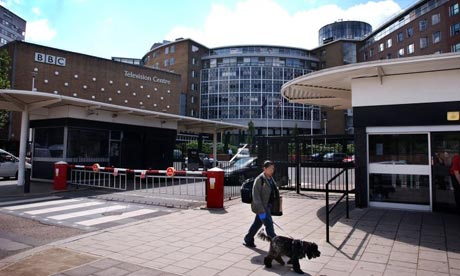 In the light of the "scandal" about Russell Brand and Jonathan Ross as well as the noxious remarks made by Jeremy Clarkson - who we already don't like - on his show it seems a lot of the papers are calling for a rethink on the way the BBC is funded.
In the light of the "scandal" about Russell Brand and Jonathan Ross as well as the noxious remarks made by Jeremy Clarkson - who we already don't like - on his show it seems a lot of the papers are calling for a rethink on the way the BBC is funded.I disagree. I don't think it is the way that the BBC is funded that causes these problems. I think other stations have just as much rampant misogyny and tasteless jokes as the BBC. In fact the way the BBC is funded makes it more accountable to the public than other stations. Remember while Brand is no longer working at the BBC, he still has a show on Channel Four.
I think instead we should be asking - why is the BBC trying to compete with commercial channels? The whole point of the BBC is that it's different to commercial channels and should be offering something to the public which commercial channels cannot offer because of the way THEY'RE funded.
The BBC doesn't need to have the best ratings. There's no need for the BBC to put on these "laddish" shows - like Top Gear and Jonathan Ross - in order to win viewers. They should instead focus on offering more quality cultural shows, more quality documentaries. And as far as entertainment, they should be nurturing new talent, not paying through the nose for established "talent".
Jonathan Ross, we are told, is on £6m a year. For that money you could hire 200 new up and coming writers, actors, performers, comics, singers, dancers, entertainers, directors, etc. I'm thinking a basic £20,000 salary plus £10,000 towards the cost of putting together the show they want to make. Is there anyone in the universe who really thinks the output of such a massive-scale project would be less interesting than yet another middle-aged straight white bloke sat behind a desk asking actresses to describe what it was like working with Daniel Craig...? Of course not.
Now of course I'm biased, I don't seem to have my own TV show yet (although I was on BBC London again yesterday trying to explain to that creep Simon Warr why lap-dancing clubs shouldn't be licensed like cafes). But then again I guess that also makes me pretty well qualified to say that there is a lot of talent out there on the comedy circuit and the acting circuit and in terms of writers and directors and producers that would really benefit from the opportunity to complete their projects.
We love the BBC when it finds new talent and new ideas for us - whether it's The Office or Teletubbies but no-one cares whether they watch Jonathan Ross on the BBC or on ITV or Channel Four. Let the commercial channels pay the seven-figure salaries if these people are really worth it and lets have the BBC be about something different, something that rejects the prevailing misogynist climate and focusses on education, culture and new talent.

3 comments:
So you want a publicly funded BBC to look and think like you, a pretty extreme left-wing androphobe.
And you think that's democratic?
Jeremy Clarkson (for example) represents brilliant value for money. Top Gear is the Best selling programme the BBC make - so his salary is irrelevant. Why? High production values and entertaining content (Mostly lambasting humourless pinko shills like yourself).
There's plenty of cultural content on the BBC. If that's all there was, you'd be whining that it was "eliteist" or something.
A publically funded BBC produces top gear and organinc yurt weaving for lesbians. There. Everyone's happy.
Is part of the licensing regs not that they have to justify themselves in terms of ratings? During the 1980s the BBC was told to act more like a business, paying attention to ratings and seeking alternative funding for joint productions and alternative markets (i.e. overseas) in order to continue to justify its licence fee. As far as I'm aware this is still an aspect on which the BBC's continued receiving of the money from the licence fee is judged. As a result, from a ratings POV, retaining talent that will get them good ratings makes sense.
However, given that they also have a cultural remit to fulfil, I do agree that they should consider whether or not producing the same old stuff that can be found elsewhere does enhance their product range. Especially given the price range they are wandering into.
People like you Jackart justify why Clarkson should be taken off air, because he justifies and mainstreams offensive views like yours.
And yes as I understand it the BBC has been told in the past to act more like a business and I think they should be "untold" that. What is the point of having a special structure so that they're not funded like a business and then using that structure to run them as much like a business as they can?
Post a Comment